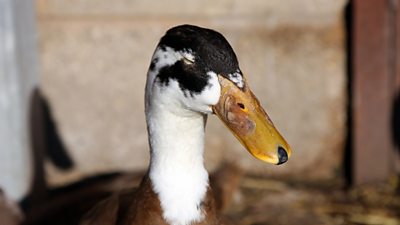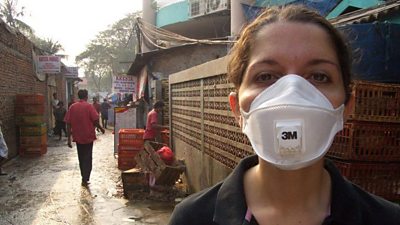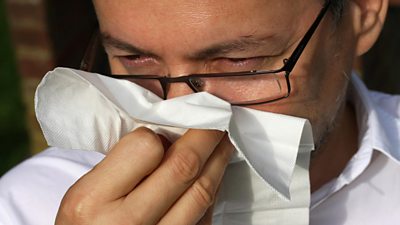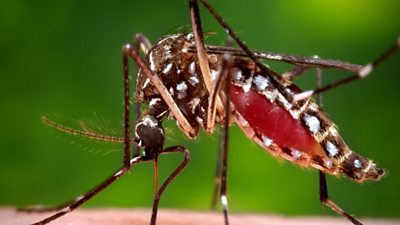There was an outbreak of Avian Influenza in a poultry farm in Yorkshire UK in November 2014. It is not thought that this virus represents any of the serious viruses that have the potential to spread to humans, however it can be a serious disease for poultry.
Background
Whilst there is currently no evidence that this could be harmful to humans it is important to take the correct hygiene measures and specifically follow any advice from government officials relating to exclusion zones and cleaning and disinfection following visiting farms in the area. This is to ensure that we are not inadvertently spreading the disease to other farms.
Measures for those on location covering the story
- Avoid direct contact with Poultry or birds or their secretions or excrement.
- Wash your hands thoroughly with soap and hot water following any potential contamination and especially before eating, drinking, smoking or touching your face. If you don’t have access to soap and water then use alcohol based gels or wipes instead.
- If clothing is contaminated then take off and place in a plastic bag. Either bin or machine wash on hot.
- Contaminated equipment can be wiped with alcohol based wipes and allowed to dry in the air. Make sure you wear gloves and wash your hands thoroughly after cleaning equipment.
- If you are unwell with a temperature then seek medical advice.
Measures for others
- There are no measures required for those who are not covering the story.
For further information please contact the Safety Advice Line
Recommended links
Disease-specific topics
-

Bird Flu
Advice for staff covering the outbreak of avian 'flu in Yorkshire in 2014 -

Living with Coronavirus (Covid-19) – advice for staff
Advice for staff about travel and/or interviewing guests -

Disease and Contact with Viruses and Bacteria
A guide for anyone deployed to areas where there is risk from infectious disease from human, animal, insect or parasite sources, including zoonoses. These controls can also apply to harmful bacteria found in incidents such as sewage spills. -

Ebola Virus Disease (EVD)
Ebola is a contagious and often fatal illness which has had periodic outbreaks in the DRC and Sudan. -

Influenza ('Flu)
A guide to influenza, or 'flu', for individuals seeking general advice or during an epidemic or pandemic situation. -

MERS: Middle East Respiratory Syndrome
This is a virus that is new to humans and was first identified in Saudi Arabia in 2012. -

Mpox (monkeypox)
Requirements to be met for Mpox (2024) outbreak coverage and/or travelling to work in areas where there are high reported cases of Mpox. -

Zika Viral Disease
Zika Viral Disease is a mosquito-borne disease caused by the Zika virus. In 2015, the World Health Organisation declared it a global public health emergency.
More from SSR
-
Your platform to record accidents, risk assessments, assurance monitoring and inspections
-
Safety Equipment Stores
Just one number to call: 020 3614 5155 -
����ý Safety Guidelines
An A-Z of ����ý's Health and Safety Guidelines -
Safety Advice Line: 0370 411 0464 Email: safety@bbc.co.uk
Events guidance - key links:
- Exhibitions
- General Guidance
- Indoor Location Recce Checklist
- Outdoor Location Recce Checklist
- Major Incidents & Emergency Planning
- Marketing and Promotional
- Noise Exposure
- Planning and Management
- Responsibilities
- Responsibilities Form
- Laser Lighting Effects
- Strobe Lighting
- Temporary Stages and Rostra
Health topics - key links:
- (����ý network only)
- Contributors Fitness to Participate
- Display Screen Equipment (DSE)
- (����ý network only)
- First Aid and Welfare on Location
- International Travel - Risks & Health
- Manual Handling
- Mental Health: Homepage
- (����ý network only)
- Personal Health and Wellbeing
- Pregnancy
- Psychological Trauma Support & Trauma Risk Management (TRiM)
- Tiredness and Fatigue
- Travel Health Contacts
����ý High Risk - key links:
- CBRN and Industrial Spills
- Covert Filming
- Crisis Management and Security Support
- Demonstrations, Protests and Crowds
- Disaster Coverage
- Door Stepping
- (����ý network only)
- (����ý network only)
- Public Order
- Safety Equipment Stores
����ý Journalism - key links:
����ý Productions - key links:
- Aerial Filming and Airfields
- Animals: Displaying and handling for performance
- Boats: Working on
- Children and Young People
- Driving
- Electrical Equipment and Systems
- First Aid and Welfare on Location
- Food Safety (Cooking and Catering)
- Remote Location Working
- Roads and Streets: Working by
- Security of Productions on Location
- Stunts
- Tiredness and Fatigue
- Unmanned Aerial Systems (UAS aka Drones)
- Vehicles: Recording in, from and around
- Working at Height: Mobile Elevating Work Platforms
- Working at Height: Tower Scaffolds
����ý Radio - key links:
- (����ý Network only)
����ý Security - key links:
����ý Sport - key links:
About this site
This site describes what the ����ý does in relation to managing its health, safety and security risks and is intended for those who work directly for the ����ý.
It is not intended to provide instruction or guidance on how third parties should manage their risks. The ����ý cannot be held liable for how this information is interpreted or used by third parties, nor provide any assurance that adopting it would provide any measure of legal compliance. More information
Some links on this site are only accessible when connected to the ����ý network
